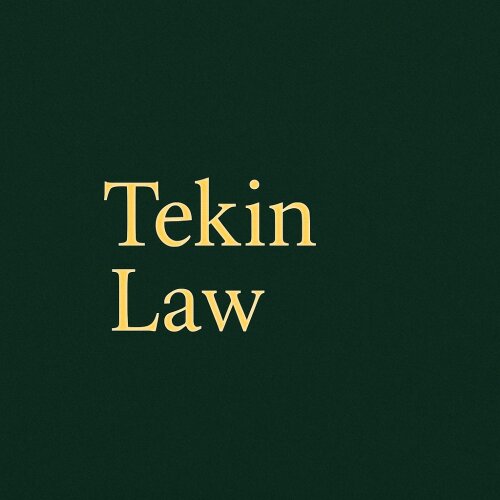Best Acquisition / Leveraged Finance Lawyers in Turkey
Share your needs with us, get contacted by law firms.
Free. Takes 2 min.
Or refine your search by selecting a city:
List of the best lawyers in Turkey
Legal guides written by Tekin Law Firm:
- Arbitration in Turkey
About Acquisition / Leveraged Finance Law in Turkey
Acquisition and Leveraged Finance law in Turkey involves legal frameworks and regulations that govern the financing of company mergers, acquisitions, and takeovers, especially those funded through borrowed capital. Leveraged finance refers to funds acquired primarily through debt instruments, such as loans or bonds, often used to amplify investment potential in acquisition deals. In Turkey, these transactions are subject to local regulation and international best practices, reflecting the dynamic nature of the Turkish banking and financial services sector. Such deals often require careful legal structuring to comply with both banking laws and company regulations while minimizing risk.
Why You May Need a Lawyer
There are several situations where expert legal help is crucial in acquisition and leveraged finance transactions in Turkey. Acquiring a business through borrowing exposes parties to regulatory compliance issues, tax considerations, loan structuring, due diligence obligations, and negotiation of complex financing documents. Lawyers assist in:
- Evaluating and structuring leveraged buyouts and acquisitions.
- Negotiating loan and security agreements with local or international banks.
- Understanding the legal risks and tax implications associated with debt-financed deals.
- Ensuring compliance with Turkish banking, foreign investment, and competition laws.
- Resolving disputes that may arise during or after the transaction.
Given the technical nature and high value of such transactions, engaging a legal expert helps protect your interests and promote successful deal completion.
Local Laws Overview
Acquisition and leveraged finance transactions in Turkey are governed by a combination of banking, commercial, and securities regulations. The key legal aspects include:
- Banking Regulations: The Banking Regulation and Supervision Agency (BRSA) oversees lending activities. Loans for acquisition finance often require compliance with capital adequacy standards and transaction reporting.
- Corporate Law: The Turkish Commercial Code covers company sales, mergers, and share transfers, including the requirements for corporate approvals and registration.
- Securities Law: Operations involving publicly traded companies must respect Capital Markets Board (CMB) regulations concerning disclosures, takeover rules, and tender offer requirements.
- Collateral and Security: Turkish law details what types of collateral can be used. Perfection and enforcement processes are strictly regulated, especially for financial assets and mortgages.
- Exchange Controls: Certain cross-border transactions are regulated, although recent reforms have further liberalized foreign currency lending and investments.
- Tax Implications: Interest payments, withholding taxes, and stamp duty can significantly affect transaction terms and need to be carefully managed.
A deep understanding of these areas is vital for structuring compliant and effective acquisition or leveraged finance deals in Turkey.
Frequently Asked Questions
What is leveraged finance in the context of Turkish law?
Leveraged finance in Turkey generally refers to using significant amounts of borrowed funds, typically loans, to finance the acquisition of a company or its assets. The practice is regulated by Turkish banking and commercial laws to ensure risk controls and compliance.
Can foreign entities participate in leveraged finance transactions in Turkey?
Yes, foreign investors can engage in leveraged finance deals in Turkey, subject to Turkish investment, banking, and, in certain cases, foreign currency and exchange regulations.
What types of collateral are commonly used in acquisition finance deals?
Common forms of collateral include share pledges, mortgages on real estate, assignments of receivables, and pledges over movable assets. The law prescribes specific procedures for creating and perfecting these securities.
Do acquisition finance loans require regulatory approval?
Most acquisition finance loans offered by Turkish banks must comply with BRSA guidelines. Foreign loans may require additional filings or notifications, especially if foreign currency is involved.
How does the Turkish Commercial Code affect acquisition finance?
The Turkish Commercial Code sets out how mergers, acquisitions, and transfers of shares must be conducted, including corporate approvals, registration processes, and protection of minority shareholders.
What are the main risks in leveraged finance transactions?
Key risks include non-compliance with regulatory rules, defective securities or collateral, adverse tax consequences, breaches of loan covenants, and potential insolvency issues.
Can acquisition finance structures be used for both shares and assets?
Yes, leveraged finance deals in Turkey can be structured for the acquisition of shares (equity) or assets, depending on the objectives and legal requirements of the buyer and lender.
What role do competition laws play in acquisition finance?
Acquisitions that meet certain thresholds require clearance from the Turkish Competition Authority to ensure the deal does not create anti-competitive effects.
Are there any restrictions on repayment of foreign currency loans?
Reforms have eased many restrictions, but repayment terms for foreign currency loans must comply with specific Central Bank and BRSA requirements, particularly in relation to the borrower's income source.
Is due diligence mandatory in leveraged transactions?
While not strictly mandated by law, conducting legal and financial due diligence is standard practice to assess risks and ensure compliance prior to completing a transaction.
Additional Resources
To better understand acquisition or leveraged finance in Turkey, consider consulting:
- Banking Regulation and Supervision Agency (BRSA)
- Capital Markets Board (CMB)
- Turkish Competition Authority
- Union of Chambers and Commodity Exchanges of Turkey (TOBB)
- Public Disclosure Platform (KAP) for information on listed companies
- Turkish Ministry of Treasury and Finance for official guidance on taxation and foreign investment
In addition, professional networks such as the Turkish Industry and Business Association (TUSIAD) and legal publications or bar associations offer further insight into best practices and evolving regulations in this area.
Next Steps
If you are considering or involved in an acquisition or leveraged finance transaction in Turkey, it is recommended to:
- Gather key documents such as term sheets, draft loan agreements, and company financials.
- List your business objectives and any known risks or special considerations.
- Research and connect with qualified lawyers experienced in acquisition and finance law in Turkey.
- Schedule a legal consultation to discuss your goals and receive tailored advice on legal structuring, compliance, and negotiation strategies.
- Stay informed of regulatory updates by following relevant governmental and professional sources.
Proactive legal engagement helps safeguard your interests and streamlines the process for acquisition or leveraged finance transactions, whether you are a buyer, seller, or financial institution.
Lawzana helps you find the best lawyers and law firms in Turkey through a curated and pre-screened list of qualified legal professionals. Our platform offers rankings and detailed profiles of attorneys and law firms, allowing you to compare based on practice areas, including Acquisition / Leveraged Finance, experience, and client feedback.
Each profile includes a description of the firm's areas of practice, client reviews, team members and partners, year of establishment, spoken languages, office locations, contact information, social media presence, and any published articles or resources. Most firms on our platform speak English and are experienced in both local and international legal matters.
Get a quote from top-rated law firms in Turkey — quickly, securely, and without unnecessary hassle.
Disclaimer:
The information provided on this page is for general informational purposes only and does not constitute legal advice. While we strive to ensure the accuracy and relevance of the content, legal information may change over time, and interpretations of the law can vary. You should always consult with a qualified legal professional for advice specific to your situation.
We disclaim all liability for actions taken or not taken based on the content of this page. If you believe any information is incorrect or outdated, please contact us, and we will review and update it where appropriate.
Browse acquisition / leveraged finance law firms by city in Turkey
Refine your search by selecting a city.















